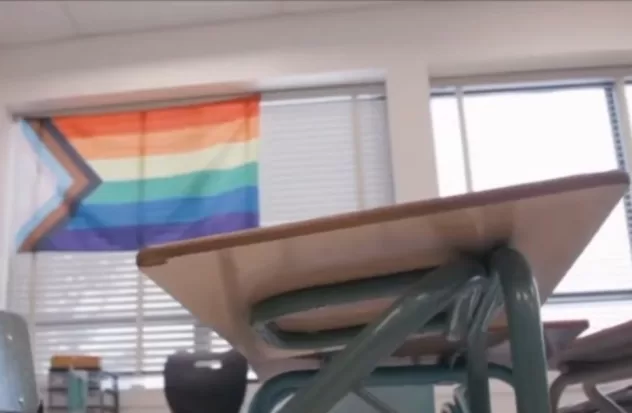Florida civil rights lawyers and education officials agreed Monday that students and teachers can talk about sexual orientation and gender identity in classrooms, as long as it is not part of formal instruction.
According to journalistic reportthe agreement arises in response to the controversial norm known as “Don’t say gay”, and whose formal name is the Parental Rights in Education Act, which faced legal challenges and criticism for its consequence on the visibility of the LGBTQ+ community in schools.
In 2022, the standard that initially prohibited instruction on sexual orientation and gender identity in early grades, leading to confusion over whether teachers could identify as LGBTQ+ people or wear rainbow symbols in classrooms.
The next year its scope was extended until the last year of high school affecting children from five to 18 years old.
The agreement signed Monday clarifies the scope of discussions allowed in classrooms and addresses concerns that arose after the law was enacted.
Under the terms, the Florida Board of Education will send instructions to each school district, indicating that it does not prohibit talking about LGBTQ+ people, nor prevent the application of rules against harassment based on sexual orientation and gender identity, or training of Gay-Straight Alliance groups.
It also states that the law is neutral, meaning it applies equally to LGBTQ+ and heterosexual people, and its scope does not extend to library books not used for classroom instruction.
The agreement also specifies that the legal rule does not apply to books with incidental references to LGBTQ+ characters or same-sex couples.
Roberta Kaplan, the lead attorney for the plaintiffs, stated that: “What this agreement does is restore the fundamental principle, which I hope all Americans agree on, which is that every child in this country has the right to an education in a public school where they feel safe, their dignity is respected and where their families and parents are welcome.”
Ryan Newman, attorney for the state of Florida, stated that “We fought hard to ensure that this law could not be defamed in the courts, as it was in the public arena by the media and large corporate players.”
“We have been victorious, and Florida classrooms will continue to be a safe place under the Parental Rights in Education Act,” he said.
In a statement, the office of Florida Governor Ron DeSantis – who signed the bill in 2022 – described the agreement as a “major victory” that leaves the Parental Rights in Education Act, which is a formal name, intact.
According to a report of ABC Newssupporters of the legislation, including DeSantis, argue that it is a necessary and reasonable measure to allow parents to decide when and how to introduce LGBTQ+ topics to their children.
The law has been championed by the Republican governor since before its passage in 2022 by the Republican-controlled Florida Legislature.
Alabama, Arkansas, Indiana, Iowa, Kentucky and North Carolina are some of the states that have versions of Florida’s controversial “Don’t Say Gay” law, and are inspired by it.


